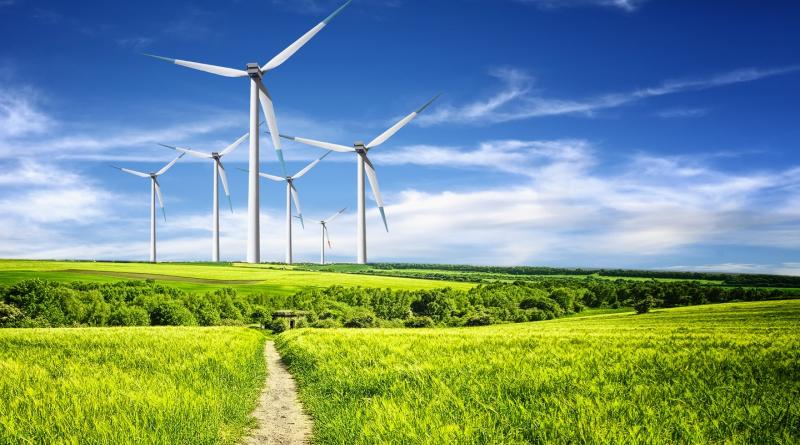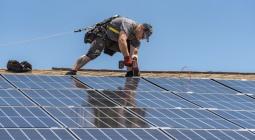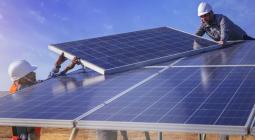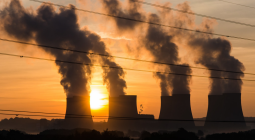Investors to governments: Build back better, or deal with escalating climate risks.

As governments claw their way out of the pandemic, they must not lose sight of the climate crisis to safeguard investors and economies from escalating risks from global heating, a global network of investors has said.
A coalition of seven global investor groups that promote responsible finance has issued a statement urging governments to draft coronavirus stimulus plans aimed at building green economies, warning a return to planet-heating business-as-usual would expose countries and investors to escalating risks from climate change.
Released on Tuesday (5 May), the statement says a sustainable economic recovery from the outbreak must not only protect communities from the virus’ impacts and its economic fallout, but also uphold the Paris climate deal by integrating measures that spur the transition towards zero emissions.
The coalition, which includes the Asia Investor Group on Climate Change, Principles for Responsible Investment and the United Nations Environment Programme Finance Initiative, says it is critical that governments work with investors, companies and workers to develop recovery plans that prioritise sustainability and equity, create better jobs and catalyse responsible deployment of private capital.
In the absence of adequate measures, financial, health and social risks from global heating that face investors and economies could escalate in the coming years, threatening to undermine investors’ ability to deliver long-term returns to their beneficiaries, write the authors.
Addressed to G20 members, a club of nations that produce around 80 per cent of global economic output, the statement urges nations to create power infrastructure, buildings, transportation systems and jobs that are green, sustainable and climate-resilient while strengthening societies and preserving nature as they pursue efforts to recover from the economic downturn.
Beyond prioritising support for renewables, electrified mobility and green industrial production, this means requiring carbon-intensive corporates that receive government bailouts, loans and tax concessions to adopt plans to switch to sustainable business models.
The statement comes as scientists warn the illicit wildlife trade and human infringement on the natural world led to the outbreak and that more pandemics could follow should humanity’s intrusion into nature remain unchecked.
Paul Simpson, chief executive officer of investment firm The Central Depository (CDP), one of the signatories of the statement, said: “Shaken by the COVID-19 pandemic, the world stands at a crossroads. While the current priority is rightly to save human lives, the focus on economic recovery that will follow must prioritise building the sustainable and resilient society that we need.”
“We therefore urge investors, regulators and policymakers to work together to ensure that finance flows are aligned with the most ambitious goals of the Paris Agreement. We must ensure that long term renewal packages accelerate our economy into one that is more resilient, inclusive, and zero-carbon. It must work in harmony with nature, and not take us back to the production and consumption we know are unsustainable and leave us exposed to increased risk of future crises,” he said.
The Asian Development Bank has estimated that the pandemic could cost the world economy as much as $4.1 trillion, or almost 5 per cent of global gross domestic product, with developing Asia, including China, accounting for 36 per cent of the outbreak’s total cost.
So far, most governments around the globe have focused on preserving jobs or avoiding corporate failures to reduce the damage the virus has inflicted on economies, but top leaders in government and business in Germany, France and other European Union member states have called for steps to align interventions with climate goals.
The theme has also been taken up by environmental campaigners worldwide, and the International Energy Agency (IEA) as well as the International Renewable Energy Agency (IRENA) have called for stronger support for renewables to be included in economic recovery packages.
“Once people are taken care of, governments should be signalling their intentions for a sustainable recovery…We can’t leave climate action behind,” said Stephanie Pfeifer, chief executive officer of the Institutional Investor Group on Climate Change, who signed the new statement.
But as the first countries begin to emerge from lockdown, early signs are little has changed. Air pollution across China and northern Vietnam has rebounded as factories rumble back into production and roads are once again jam-packed, putting an end to the blue skies and clean air that citizens enjoyed when their economies had slowed down.
8 Μay 2020
Eco-Business




